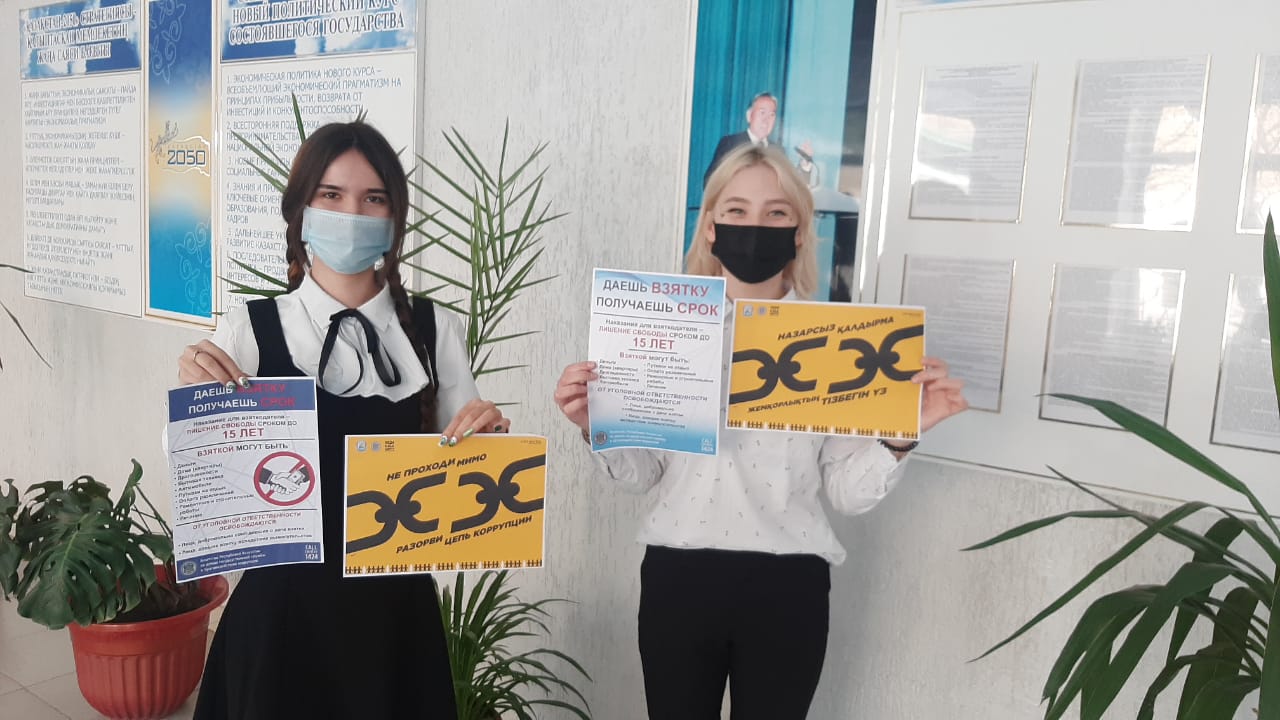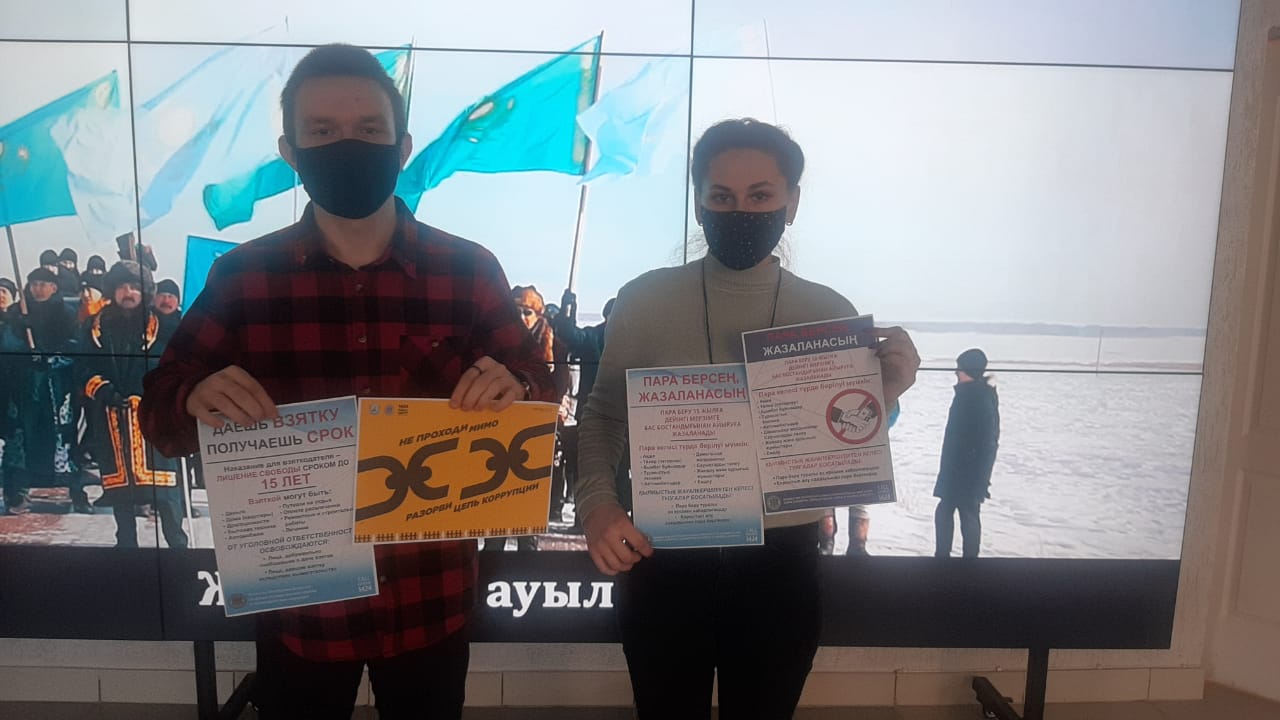



ADOPTION OF ANTI-CORRUPTION CHARTER IN THE EDUCATION SYSTEM
A new stage of state development of the Republic of Kazakhstan in the 21st century - the “Kazakhstan-2050” Strategy has become the strategic line of all activities of the education system
KEY PRIORITIES OF THE THIRD MODERNIZATION
Technological modernization and increasing productivity of economic sectors
Improvement of the institutional and business environment for the development of Kazakhstan's business
Ensuring stable financing of the economy through the priority participation of private capital
The construction of modern education systems and world-class health care
Institutional transformation, security and anti-corruption
Highly appreciating the importance of education, educational institutions in the region are aware of the presence and danger of corruption, which has affected all layers of society, including the education system.
CORRUPTION IN EDUCATION is the use of official position for personal gain, which significantly affects access to education, its quality and fairness.
Three degrees of threats to corruption in the education system:
– the ongoing reform in education may be slowed down and distorted;
– Public administration structures and educational systems, regardless of the form of ownership, due to their corruption, really threaten the solution of problems arising from the Strategy;
Recipients of educational services, becoming infected with the viruses of corruption, learning the mechanisms of their commission, violating the norms of law, morality and civil behavior, having received specialties, become employees of government bodies, financial, economic and other market structures, and such a diagnosis of the corruption disease if they have power functions , becomes a real threat to the constitutional foundations of the state.
Showing intolerance to manifestations of corruption each institution contributes to the fulfillment of the main objectives of the educational process and the implementation of the state policy of the Republic of Kazakhstan
The CHARTER establishes a mandatory model of behavior for each employee, regardless of position, and the student, as an obligatory participant in the educational process
Charter (Latin charta, from Greek χάρτης - paper, charter), in the Middle Ages and Modern times - the name of some documents of a public legal nature (constitutions and other acts), in which the demands for political rights of social strata and classes were expressed
In modern times, a charter in international law is a legal act that does not have binding force, is close in meaning to a declaration and formulates the main provisions and goals of any international agreements between subjects of political and legal relations.
The objectives of the Charter are:
Formation of anti-corruption consciousness and strengthening the sense of Kazakhstani patriotism;
Involving youth and youth organizations in the implementation of the state's anti-corruption policy;
Promoting the adoption and strengthening of measures aimed at effectively combating corruption in the education system;
Supporting measures within the framework of legal activities aimed at preventing corruption, including taking measures to identify the causes and conditions conducive to corrupt behavior;
Promoting honesty, integrity, responsibility, and appropriate anti-corruption behavior.
The objectives of the Charter are:
Ensuring the protection of the rights, freedoms and legitimate interests of citizens and society from corruption;
Development and formation of anti-corruption worldview and behavior among subjects of higher education;
Increasing efficiency and effectiveness in educational, scientific, organizational and methodological activities in order to minimize and prevent corruption risks and situations;
Identifying, intersecting and bringing to strict liability persons involved in corruption offences;
Optimization of forms, methods and means of combating corruption;
Ensuring the participation of subjects of higher, technical and vocational education in the anti-corruption policy of the state.
We, Petropavlovsk Construction and Economic College, accept the Anti-Corruption Charter
In educating young people we follow the principles:
increasing the level of anti-corruption and legal culture;
zero tolerance for corruption;
respect for the rights, freedoms, honor and dignity of others.
Higher and secondary specialized educational institutions of the North Kazakhstan region, being concerned about the danger of problems and threats generated by corruption for the state and society, undermining democratic institutions, ethical values and justice, recognizing and understanding the threat of corruption to the entire education system of the country, accept this Charter.
